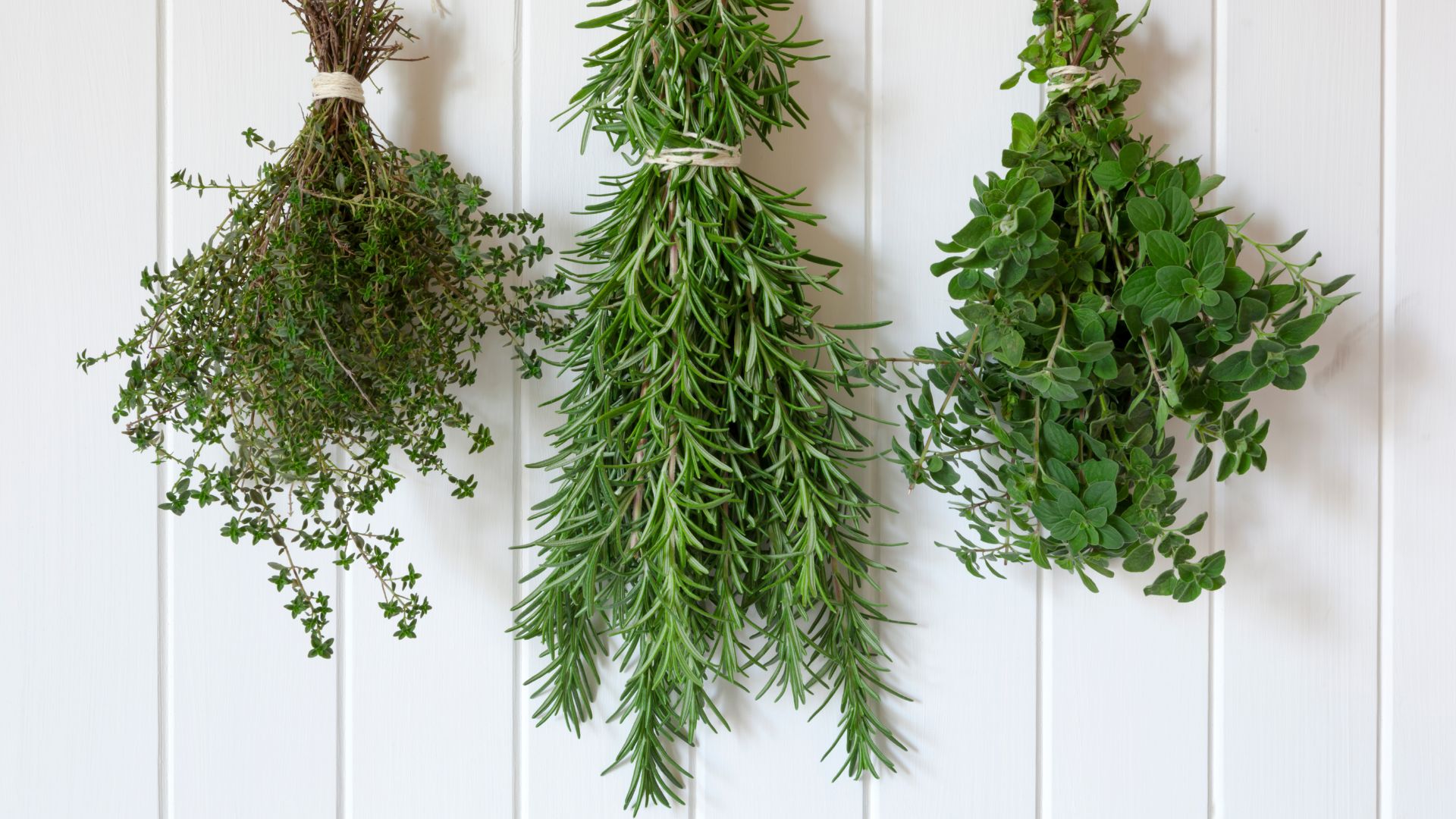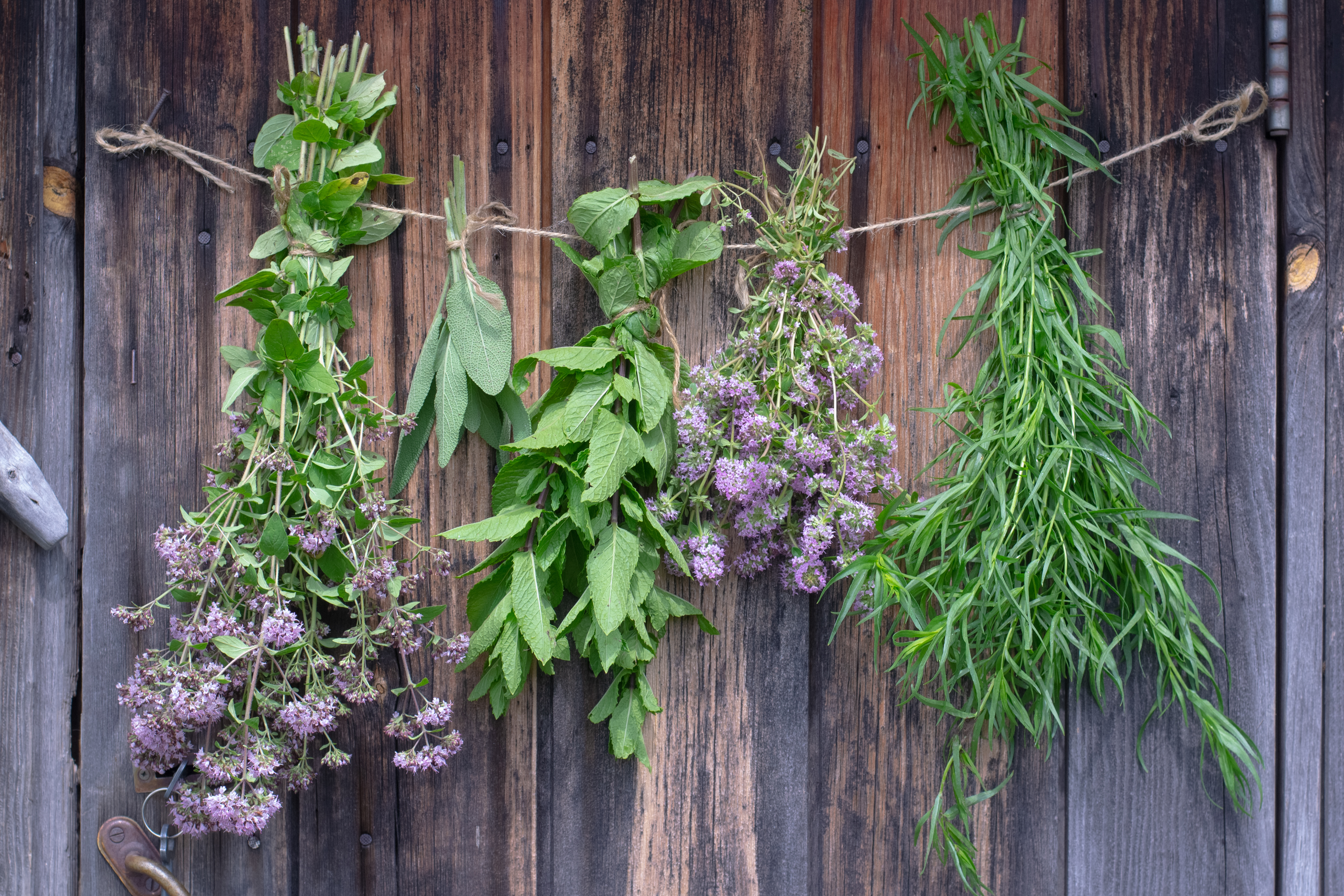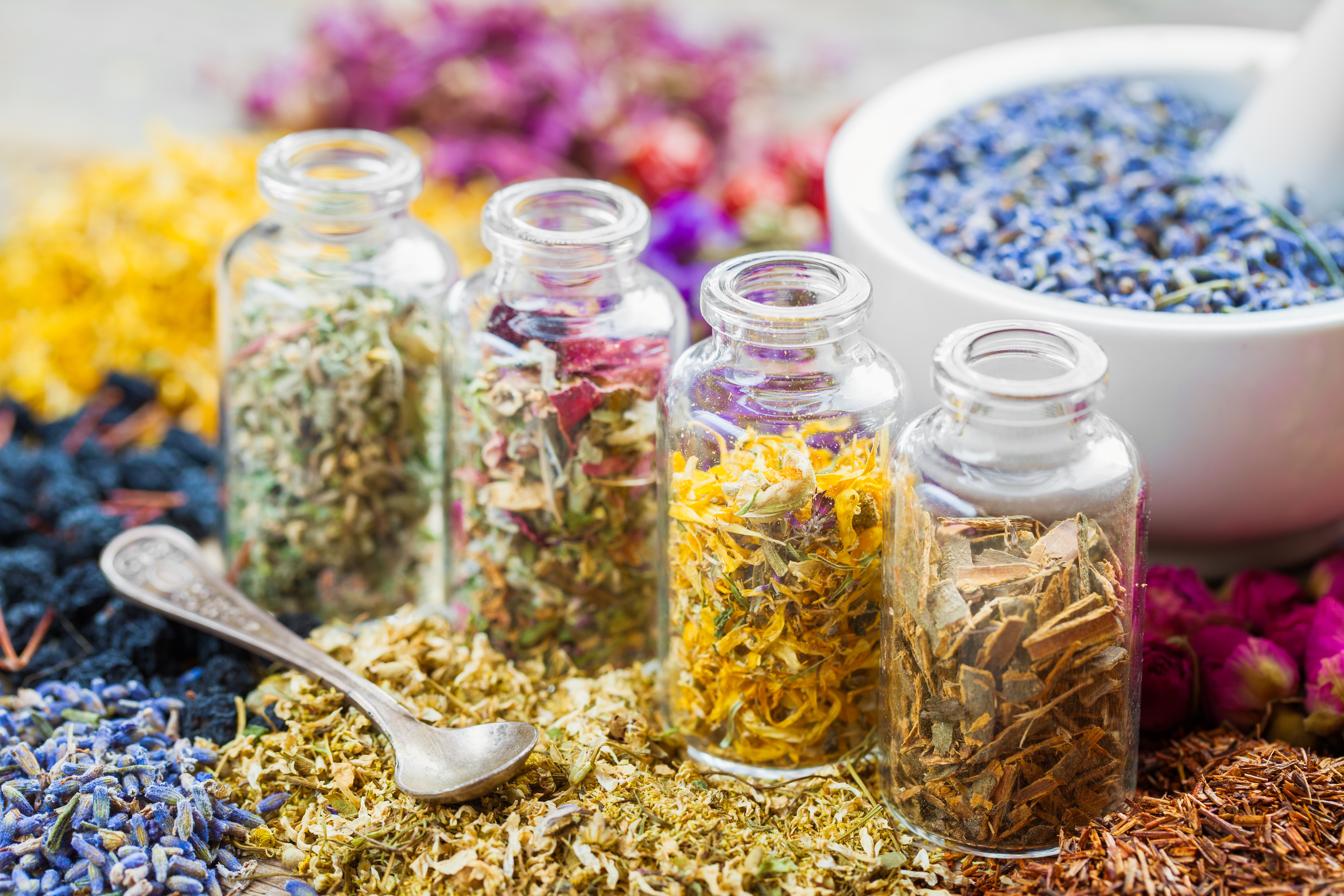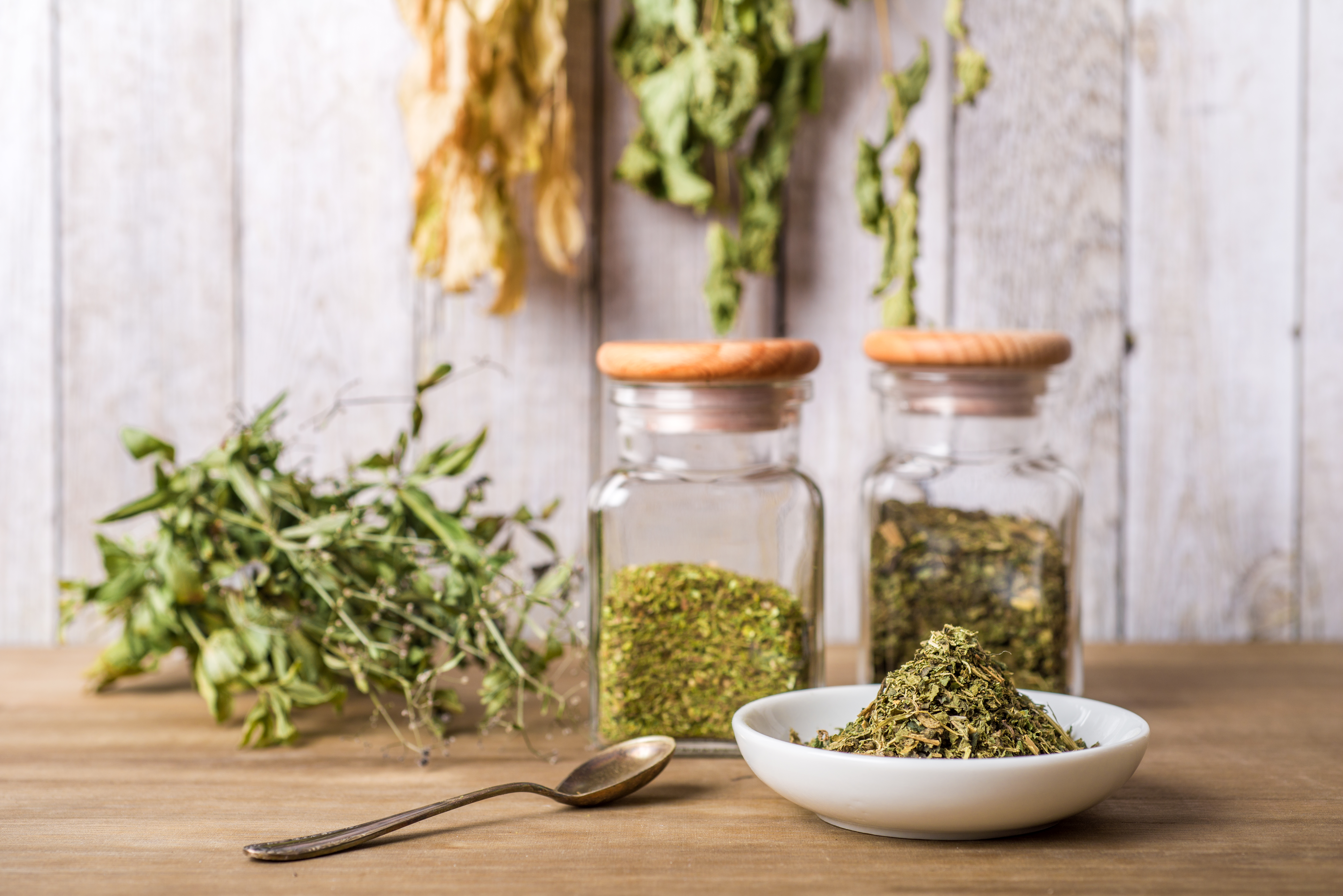
The best part about growing your own produce is being able to harvest it once ready. It remains to be one of the most rewarding parts of being a plant parent and when you're a culinary gardener — the most delicious, too.
If you plant to cook and have an array of kitchen plants adding to your daily harvest, then herbs are likely a big part of your indoor space. And to make the most of homegrown herbs, we thought it best to have the experts weigh in on what we should be doing to conserve our harvest post-cutting.
The professionals have come through with their expert methods on how to dry and store fresh herbs and we have a feeling that this will soon become our go-to guide to those herb garden ideas and keeping them in the best shape for comestible purposes.
How to Dry Herbs

The perk to growing your own herbs is being able to cut them when harvesting time rolls around. And while cutting is one of the best ways to make your indoor garden produce more, it's also a winning experience.
Having said that, it's important to properly care for your herbs after taking them off the stem, and gardening expert Lydia Beaumont tells us that drying them is the key.
Depending on the herb type, she explains that they can be air-dried, oven-dried, or even dried using a dehydrator. "Air drying is ideal for hardy herbs like rosemary, thyme, and oregano," she notes. "Simply tie the stems in small bunches and hang them upside down in a cool, dry place."
Lydia finds that oven drying is best for tender herbs like basil and mint. She recommends spreading the leaves on a baking sheet and drying them at a low temperature (around 180°F) for two to four hours.
And above all, she tells us that a dehydrator works for almost any herb and preserves the flavor best. So if you're interested in gifting yourself one, we find that this Magic Mill food dehydrator machine from Amazon is a brilliant buy.
How to Store Herbs

When it comes to cultivating from your herb garden, drying is definitely a key step, but so is storing them. According to Lydia, this step is crucial to keeping your dried herbs fresh and easy to handle when you're in the midst of whipping up a dish.
"Once dried, store herbs in airtight containers away from direct sunlight to preserve their flavor," she says. "Glass jars or mason jars work great and I find it best to label each container with the herb name and date for easy identification."
This may seem like an extra step throughout the process of cultivating your herbs but it is one that Lydia finds to be extremely helpful. And if we're being honest, it can make for quite the aesthetic herbal gallery as well.
Best Herbs to Dry

Among your array of houseplant-worthy herbs, there are definitely a couple that are the best contenders for the drying process. Lydia tells us that hardy herbs like rosemary, thyme, and oregano retain their flavor well when dried and are commonly used in cooked dishes.
She also finds that tender herbs like basil, parsley, and cilantro are best dried using quicker methods like oven-drying or dehydrators, as they lose flavor more quickly.
As for woody herbs like sage and lavender, she tells us that they are perfect for both culinary and aromatic uses. Plus, they dry well and hold their essential oils.
With that, we have all the insight we need to keep our herbs ready for cooking. And with help from our experts, our dishes will likely have an exotic zest for days to come.
Your guests will definitely be asking you about that magic ingredient that's making your dishes extra tasty, to which you'll have a stunning anecdote to wow them with. After all, if there's anything we've learnt, it's that homegrown is the ultimate flex.
FAQs
Can you dry herbs for too long?

Yes, unfortunately, there is such a thing as overdrying. And if you're not careful when drying your herbs, overdoing it can cause a loss of flavor and color. Each herb has its own individual tolerance to drying.
Small leaves can take anywhere from two to eight hours to dry, while denser herbs are heavier and can dry for as long as eighteen hours. Before drying your herbs, check to see their optimal dry rates and proceed accordingly.
It's also important to note that tender-leaf herbs such as tarragon, lemon balm, and mint, generally tend to have a high moisture content and will mold if not dried quickly. So it's best to be extra careful when drying such varieties.







